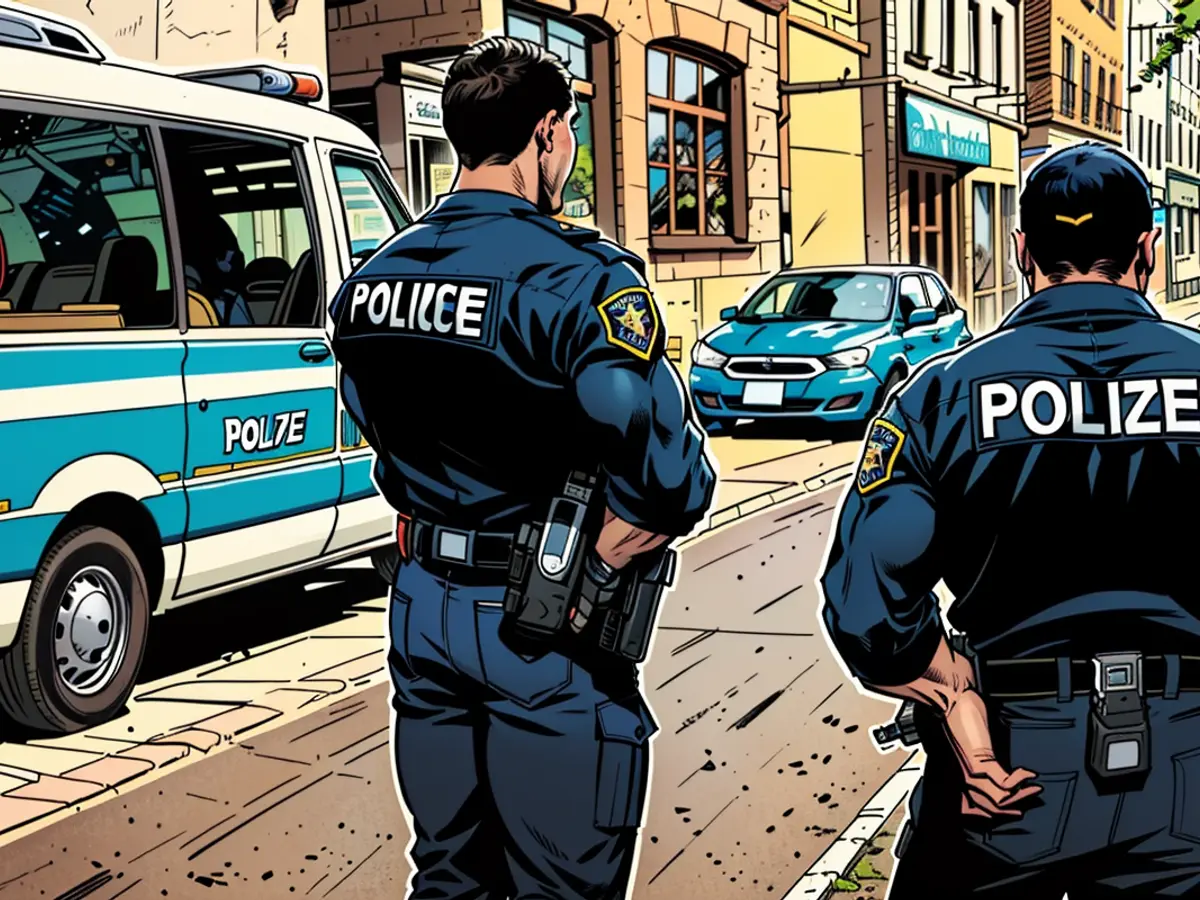Brunswick and Berlin Make Headlines - Saxony's authorities prohibit Salafist organization.
The crackdown on the German-Speaking Muslim Community (DMG) in Braunschweig signaled a significant response from Lower Saxony on Wednesday in tackling the Islamist scene in Germany. The organization is said to undermine the constitution and intercultural understanding, revealed Lower Saxony's Interior Minister, Daniela Behrens (SPD). "We refuse to accept associations that repeatedly devalue non-believers, women, and Jews, and our societal order," said Behrens, adding the DMG ban was a severe strike against the Salafist movement not only in Lower Saxony but nationwide.
Police raids in Braunschweig and Berlin
The enforcement of the ban witnessed law enforcement agencies combing eight locations in Braunschweig and Berlin. The searches were not accompanied by any arrests, per Behrens' statement. DMG's assets were confiscated. DPA news agency confirmed that the operation in Berlin centred around two private apartments.
Coordinated efforts between federal and state governments
Behrens noted that the activations revolving around the ban were conducted in close collaboration with the federal government. "The federal government and the states are unequivocally countering the adversaries of our liberal society," said Federal Interior Minister, Nancy Faeser (SPD) in a statement. Faeser underscored the importance of monitoring the Islamist scene, stating, "We don't condone organizations that radicalize young people and lure new Islamists."
Years of surveillance
DMG has long been under close monitoring by the Office for the Protection of the Constitution in Hanover. It has been said that the organization drifted towards extremism. Expanding its audience through online platforms and social media, the group reached tens of thousands of young people. Similarly, nationally prominent Salafist preachers' appearances were aired across various channels. Reportedly, their speeches espoused intolerance, abhorrence, and incitement, instead of religion.
The association was deemed a crucial hub of Salafist activity and one of the Salafist strongholds in Germany.
Salafism: A retrogressive movement within Islam
Salafism, a conservative movement within Islam, advocates for a traditional interpretation of the faith. Salafists claim to be protectors of an unaltered religion and oppose any reforms. They aim to restructure the state, legal system, and society in accordance with their beliefs. The endgame is establishing an Islamic state.
Closing DMG's online channels
The ban also targeted DMG's online initiatives. Behrens' announcement prompted authorities to request platform operators to close the DMG's channels. The Salafist ideology has been disseminated around Lower Saxony and beyond through avenues like YouTube, TikTok, Spotify, and Telegram, according to Behrens. Radical contents such as tips for males to dominate their "subordinate" women, along with militant appeals calling on Muslims to follow Salafist orders contrary to democratic norms, were allegedly shared.
DPA information also points to a Federal Office for the Protection of the Constitution decision banning the DMG due to its influence surpassing Lower Saxony. Thomas Haldenwang, the agency's head, acknowledged the influence of Islamist organizations such as Group Muslim Interactive, which intend to guide young Muslims with meticulously produced videos. "The primary goal is to propagate archaic teachings, even going so far as to establish a caliphate," asserted Haldenwang.
Read also:
- Daniela Behrens, the Interior Minister of Lower Saxony and a member of the SPD, criticized the DMG for consistently devaluating non-believers, women, and Jews.
- In collaboration with the federal government, Behrens enforced a ban on the DMG, an organization classified as undermining the constitution and intercultural understanding.
- Police raids were conducted in cities like Braunschweig and Berlin, targeting eight locations in total and seizing the DMG's assets without making any arrests.
- Salafism, a movement within Islam, has been at the center of concerns for authorities due to its conservative and traditional interpretation of the faith.
- The ban on DMG also included a request to close its online channels, as Behrens pointed out the dissemination of radical content through platforms like YouTube, TikTok, Spotify, and Telegram.
- After years of monitoring, the Office for the Protection of the Constitution in Hanover determined that the DMG had drifted towards extremism and became a crucial hub of Salafist activity in Germany.
- Nancy Faeser, the Federal Interior Minister and also an SPD member, commended the joint efforts between federal and state governments in countering organizations that radicalize young people and oppose democratic norms.
- The ban on DMG was extended beyond Lower Saxony due to its influence beyond the state borders, according to Thomas Haldenwang, the head of the Federal Office for the Protection of the Constitution.








